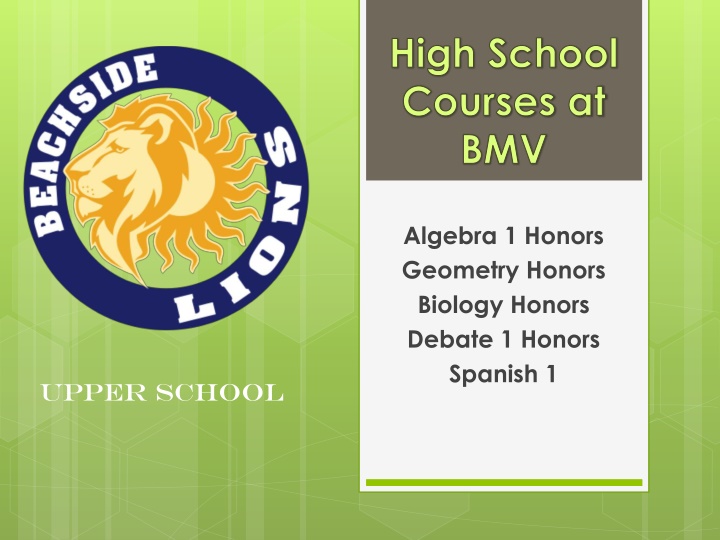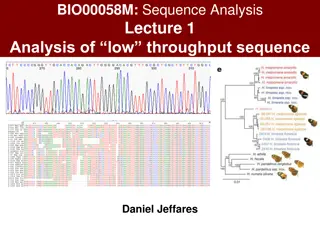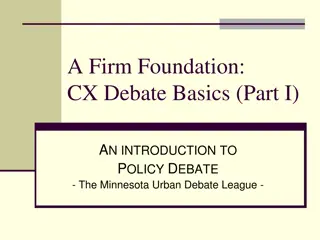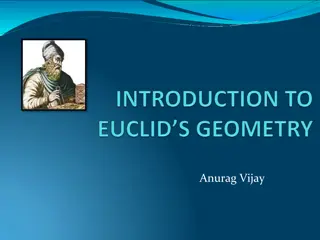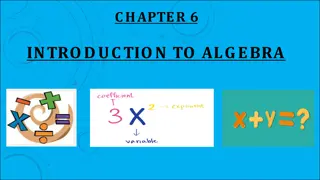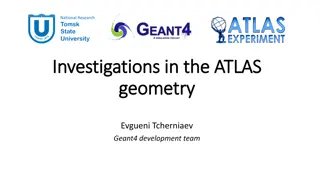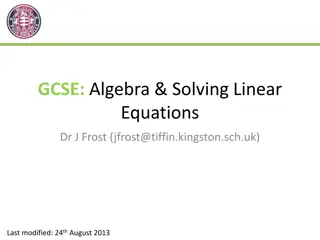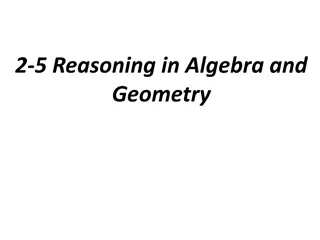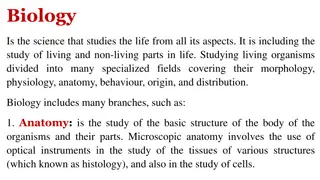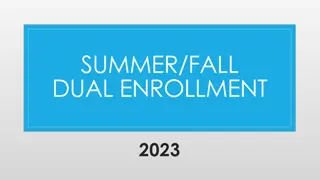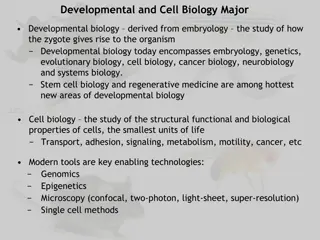Diverse High School Courses at BMV: Algebra, Geometry, Biology, Debate, Spanish
Explore a variety of high school courses at BMV including Algebra 1 Honors, Geometry Honors, Biology Honors, Debate, and Spanish 1. These courses offer a comprehensive range of subjects from math to language arts, preparing students for advanced studies and fulfilling graduation requirements. Students delve into key concepts in algebra, geometry, oral communication, language proficiency, and cultural understanding. The curriculum focuses on developing critical thinking skills, problem-solving abilities, and effective communication strategies essential for future success.
Download Presentation

Please find below an Image/Link to download the presentation.
The content on the website is provided AS IS for your information and personal use only. It may not be sold, licensed, or shared on other websites without obtaining consent from the author.If you encounter any issues during the download, it is possible that the publisher has removed the file from their server.
You are allowed to download the files provided on this website for personal or commercial use, subject to the condition that they are used lawfully. All files are the property of their respective owners.
The content on the website is provided AS IS for your information and personal use only. It may not be sold, licensed, or shared on other websites without obtaining consent from the author.
E N D
Presentation Transcript
High School Courses at BMV Algebra 1 Honors Geometry Honors Biology Honors Debate 1 Honors Spanish 1 UPPER SCHOOL
High School Level Classes Count for both the middle school and high school credit GPA earned carries over to high school Algebra, geometry & biology require a passing EOC score Debate and Spanish have a final exam
Whats the Rush? Students can fulfill high school graduation requirements Allows for more options in high school Allows for the ability to take more advanced math (calculus, statistics) Provides an acceleration path
DEBATE The purpose of this course is to develop students beginning awareness, understanding, and application of language arts as it applies to oral communication concepts and strategies for public debate in a variety of given settings. Students learn research, logic, organization of ideas, manipulation of language, assessment of audience, self esteem and engagement in world events. Speech and debate students scored at least 25% higher than the control group of honors students on the ACT reading/writing.
Spanish 1 Spanish 1 introduces students to the target language and its culture. The student will develop communicative skills in all 3 modes of communication and cross-cultural understanding. Emphasis is placed on proficient communication in the language. An introduction to reading and writing is also included as well as culture, connections, comparisons, and communities.
Algebra 1 Honors Algebra I is a mathematics "gatekeeper course. Algebra is the problem solving language of mathematics and science. It is an abstract language that uses letters to generalize mathematical operations. The purpose of the algebra curriculum is to offer a learning environment where students are challenged and engaged in complex mathematics problems that can be directly applied to real-world settings. In a technologically-fueled society, not knowing algebra limits what one can do in life.
Geometry 1 Honors Geometry is a mathematics course that is the study of visual patterns. The textbook that the students use is unique in that the students actually create geometry for themselves as they proceed through the activities and problems. Concepts are first introduced visually, then analytically, then inductively, and, finally deductively. Students are first involved in investigating and conjecturing before they are exposed to formal proofs. The purpose of the geometry curriculum is not merely to create computationally efficient students, but to offer a learning environment where students are challenged and engaged in complex mathematics problems that can be directly applied to real-world settings.
Biology Honors Laboratory investigations that include the use of scientific inquiry, research, measurement, problem solving, laboratory apparatus and technologies, experimental procedures, and safety procedures are an integral part of this course. Laboratory investigations should help all students develop a growing understanding of the complexity and ambiguity of empirical work, as well as the skills to calibrate and troubleshoot equipment used to make observations. Learners should understand measurement error and have the skills to aggregate, interpret, and present the resulting data.
Grading Scales Civics is a Middle School Level Course All seventh grade students will take an End-of-Course (EOC) assessment in Civics. The result of this test will count as 30% of the student s Civics grade.
How Students Receive Course Credit Passing the Algebra 1 EOC is required and the results will count as 30% of the final course grade. Students must take the Geometry EOC and the results will count as 30% of the final course grade. Students must take the Biology EOC and the results will count as 30% of the final course grade. A retake will be required for any student who does not pass the EOC.
High School Graduation Requirements Math: 4 Credits, one of which must be Algebra 1 or its equivalent and one of which must be equivalent. Science: 3 Credits, two of which must have a laboratory component and one of which must be Biology 1 or its equivalent and two rigorous courses. Geometry or its other equally
High School Graduation Requirements World Languages: Two sequential world language credits are required to enter one of Florida s public universities. This is also required for the scholar diploma designation.
High School Classes in Middle School High school courses taken by middle school students are calculated into the student s weighted high school GPA. Students who take honors level high school courses are rewarded with an additional quality point for grades C and above. For example: an A is a 5.0 GPA vs. a 4.0 GPA. The Bright Futures Scholarship Program, Florida s State University System, and the NCAA Clearinghouse employ different weighted point systems for their respective institutions. GPA earned affects a student s class rank upon entering high school. GPA affects a student s eligibility for participation in sports upon entering high school. (2.3)
Middle School Grade Forgiveness Policy The Forgiveness Rule for middle schools students taking high school courses, earning a grade of C , D , or F , allows the replacement of the first grade with a grade of C or higher earned subsequently in the same or comparable course. Only the new grade shall be used in the calculation of the student s grade point average. The student s record however, will show all courses taken. Any course grade not replaced according to the District forgiveness policy shall be included in the calculation of the 2.0 cumulative GPA required for graduation.
Ways to Succeed Class attendance & assignment completion Online resources Peer Study Groups Morning tutoring Practice tests
